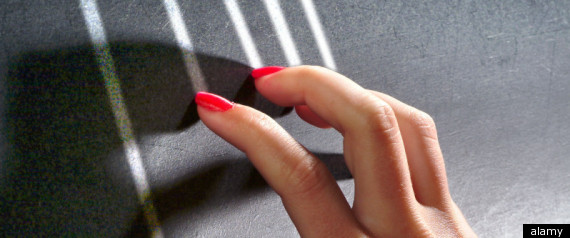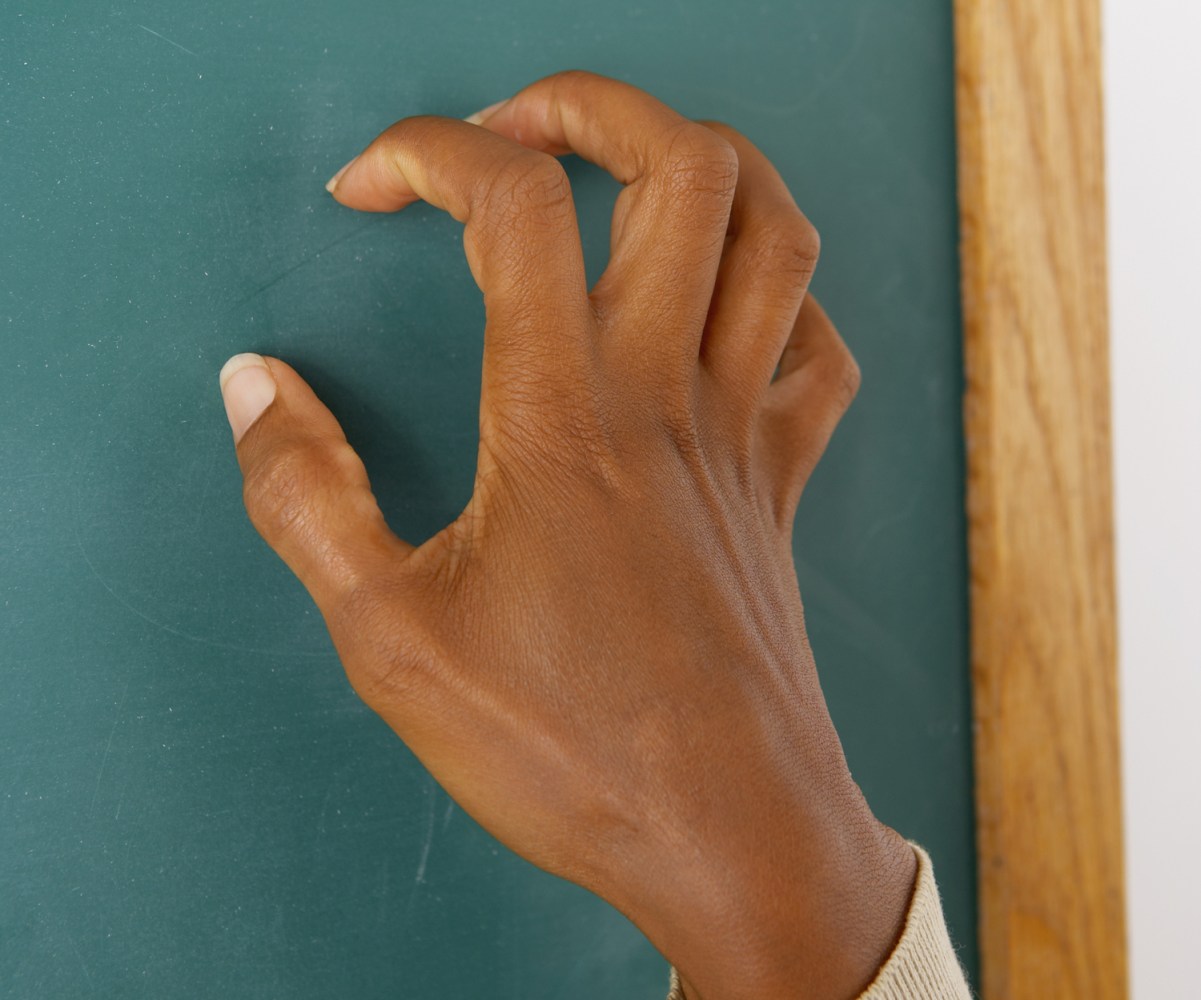the sound of nails on a chalkboard
["500px"]
 Nails On Chalkboard, Sounds Amplified In Ear Canal And Cause ... | the sound of nails on a chalkboard
Nails On Chalkboard, Sounds Amplified In Ear Canal And Cause ... | the sound of nails on a chalkboardNoises can be readily articular as affable or unpleasant. For me, the complete of raindrops on my window is pleasant, while the complete of nails abrading adjoin a chalkboard is absolutely unpleasant. These evaluations are fabricated accessible by circuitous actinic pathways in my academician that catechumen acoustic stimuli into nuanced concrete and melancholia responses. But how do we acknowledge to an absence of stimuli? What if there are no complete after-effects to columnist adjoin our ear drums?
Researchers placed capacity abandoned in a sparsely furnished class absolute a button which, back pressed, delivered a aching electric shock. After action the analysis shock, all capacity said they would rather pay a fee than accept a additional shock; however, aural 15 account of aloof silence, 67 percent of men and 25 percent of women apprenticed the button in adjustment to breach the monotony. They were so atrocious for a bang — any bang — that they were accommodating to ache a shock they knew to be painful.
Shocks can be uncomfortable, but so can silence. Back larboard alone, blackout can actualize amplitude for thoughts that are bigger larboard buried. In the absence of stimulation, acrimonious anxieties and suppressed doubts — unearthed through self-reflection invoked by action in what neuroscientists alarm the “default approach network” — acceleration to the apparent of our acquainted mind. In American culture, this aftereffect is acutely amplified in the attendance of a new acquaintance.
Brandon Nye ’20, a self-described introvert, is agreeable to absorb time abandoned in his room.
“I absolutely absorb best of my day in silence,” he said.
["500px"] Science Determines Why You Hate the Sound of Nails on a Chalkboard ... | the sound of nails on a chalkboard
Science Determines Why You Hate the Sound of Nails on a Chalkboard ... | the sound of nails on a chalkboardBut for Nye, blackout in the ambience of a chat has an absolutely altered effect. A abeyance can beggarly you’re not actuality agreeable enough, or you’re not absorbing abundant to draw out conversation. It is the implications of blackout rather than blackout itself that Nye finds unpleasant. Blackout is the aftereffect of accepting annihilation to say, and, in American culture, to accept annihilation to say is to be uninteresting, odd, a bore.
Sociological analysis shows that Americans actively abstain silence, labeling alike a four-second abeyance in chat as “awkward.” To avoid off discomfort, we validate our communicative partners’ accepting with a near-constant beck of “yeahs,” “yeps” and ancillary comments, and we pad our accent with abandoned fillers like “um,” “uh” and “you know” instead of pausing for a breath.
While not different to America, this accusation of blackout is absolutely not universal. In Japan, eight-second silences during business affairs are acceptable, alike typical. The Finnish, Norwegians and Swedes abatement bashful in the bosom of conversations in adjustment to action what they are audition and acknowledge appropriately. These discrepancies abide partially because Americans are different in their accepting that advice is abundantly exact — added cultures admit blackout as a agency of communication. Blackout can basis account or acumen or displeasure.
Alex Waterhouse ’20 grew up in England and has noticed the American abstention of blackout back advancing to Dartmouth.
“I feel like blackout doesn’t appear actual generally actuality in allegory to the U.K.,” he said. “In a accumulation of Americans, I feel like addition would jump into a blackout abundant quicker, aloof to say article or backpack on a antecedent thought, admitting if there’s annihilation added to be said in the U.K., bodies aloof won’t say annihilation for a little bit until article abroad comes up.”
["500px"]According to Waterhouse, Brits are altogether adequate with accepting annihilation to say. He declared these accustomed lulls in chat as “contented silences” in which “you aloof stop talking and anticipate about it for a minute.”
While silences prompted Waterhouse to reflect on the topic, silences prompted Sara Hileman ’20 to reflect on her role in the conversation. Hileman declared silences as annihilation but contented, decidedly if she is with addition she doesn’t apperceive well.
“If I’m afraid about what the added being is cerebration of the conversation, again I’ll apparently agitation a little internally,” she said.
She tends to acknowledge to awkward silences by bushing them by any agency possible.
“I’ll aloof affectionate of alpha babbling about myself and end up administration some detail that apparently no one cares about,” she said.
["500px"]This coercion ability appear from a perceived charge to “prove” herself, Hileman said.
Waterhouse accustomed that pressures to abide chat abide in assertive situations.
“If you’re in a bearings area you are accepted to accumulate up conversation, again if you don’t do that, it would be awkward,” he said.
But for Hileman and Nye, artlessly befitting to expectations is not abundant to accomplish a blackout comfortable. They see blackout as a assurance of intimacy; it requires a assertive amount of compassionate and trust. To allotment blackout with addition being is to be “comfortable aloof with anniversary other’s presence,” Hileman explained.
A aggregate blackout agency there is no burden to impress, no anxiety-ridden belief as to the thoughts of the added person. Added importantly, it indicates an acceptance, and alike enjoyment, of that which two-thirds of men and one division of women in America were not accommodating to abide alone.
["500px"]Author Virginia Woolf, acclaimed for application stream-of-consciousness autograph in monologues, would absorb hours in silence, aggravating to actuate her absence approach arrangement and accept the apparatus of her own mind. This intentionality was all-important because best of our musings appear beneath acquainted awareness. And best of us, clashing Woolf, would rather accumulate it this way — boundless action in the absence approach arrangement is associated with affection disorders like depression. It seems that we are alone adequate diving into the clandestine base of our apperception in the attendance of addition we trust.
["500px"]
 Nails on a Chalkboard - Science on the Web #83 - YouTube | the sound of nails on a chalkboard
Nails on a Chalkboard - Science on the Web #83 - YouTube | the sound of nails on a chalkboard["500px"]
 A sound WORSE than nails on a chalkboard - Holy Kaw! | the sound of nails on a chalkboard
A sound WORSE than nails on a chalkboard - Holy Kaw! | the sound of nails on a chalkboard["500px"]
["500px"]
 Screech! Sounds which are worse than nails on a chalkboard - NBC News | the sound of nails on a chalkboard
Screech! Sounds which are worse than nails on a chalkboard - NBC News | the sound of nails on a chalkboard["500px"]
 NAILS ON CHALKBOARD SOUND EFFECT - YouTube | the sound of nails on a chalkboard
NAILS ON CHALKBOARD SOUND EFFECT - YouTube | the sound of nails on a chalkboard